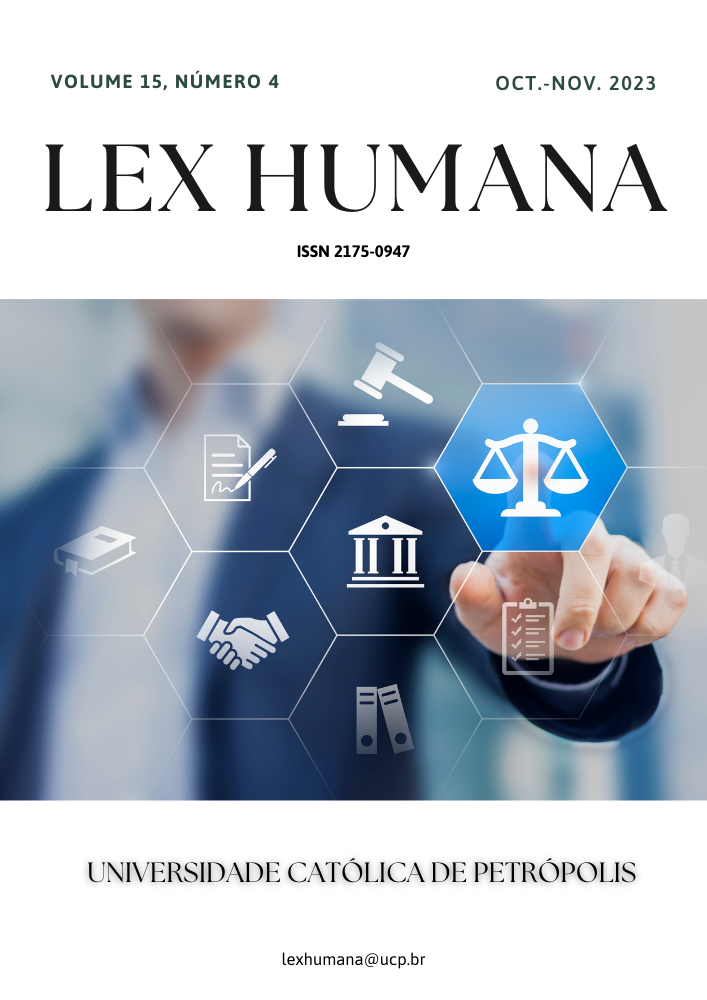Abstract
The objective of the study presented in the article is to identify and analyze the main factors of application of civil and criminal legislation in the regulation of labor relations between an employee and an employer contributing to high labor efficiency. The leading method employed in the research is a comparative legal study of the application of civil and criminal legislation in the regulation of labor relations. It is concluded that employees should never be left without wages, even if a company is experiencing a serious financial crisis. To avoid liability under Article 145.1 of the Criminal Code of the Russian Federation, the employer must pay at least 50% or more of their employees' salaries. The study identifies the main factors contributing to high labor efficiency when delegating authority. These include the flexible management style, organizational skills and professional and personal employee qualities, means of production, the use of a system of employee motivation and incentives, and practical observance of the principles of delegation. Today, when delegating authority, the manager is guided by the professional and personal qualities of the employee. It is also important that a specialist has sufficient time resources and can properly cope with their job. Successful management processes and effective delegation require following the respective fundamental principles. The authors of the article see a feature in the sphere of application of non-self-employed labor in the fact that it involves an overwhelming number of Russian citizens both as production organizers and as hired workers. The latter, as a rule, spend about half of the active phase of the calendar days at work, creating the material basis for a decent life in the remaining free time.
References
Agafonov, V. A. (2018). Pravovyye voprosy sotsial'nogo obespecheniya v psikhologicheskoy reabilitatsii postradavshikh ot neschastnykh sluchayev na proizvodstve i professional'nykh zabolevaniy [Legal issues of social security in the psychological rehabilitation of victims of occupational accidents and occupational diseases]. Obrazovaniye i pravo, 9, 81-89.
Agafonov, V. A. (2020). K voprosu o ponyatii lits, zameshchayushchikh gosudarstvennyye i munitsipal'nyye dolzhnosti, i ikh klassifikatsii [On the concept of persons holding state and municipal positions and their classification]. Pravo i gosudarstvo: Teoriya i praktika, 5(185), 120-124.
Agafonov, V. A. (2021a). Istochniki prava o sotsial'noy zashchite lits, zameshchayushchikh gosudarstvennyye i munitsipal'nyye dolzhnosti [Sources of the law on social protection of persons replacing state and municipal positions]. Matters of Russian and International Law, 11(3A), 92-100.
Agafonov, V. A. (2021b). O nekotorykh pravovykh voprosakh okhrany truda lits, zameshchayushchikh gosudarstvennyye dolzhnosti [About some legal issues of labor protection of persons holding public positions]. Matters of Russian and International Law, 11(2A), 217-225.
Babaeva, Yu., Grishnova, E., Grudtsina, L., Lazareva, M., & Mnatsakanyan, V. (2022). Legality in the implementation of the principle of separation of powers. Lex Humana, 14(1), 420-429.
Basovsky, L. E. (2011). Marketing: Kurs lektsiy [Marketing: A course of lectures]. Moscow: INFRA-M.
Bogoslavtseva, L. V. (2020). Problemy razvitiya institutsional'noy sredy nepreryvnogo obrazovaniya v usloviyakh razvitiya tsifrovogo obrazovatel'nogo prostranstva [Problems of development of the institutional environment of continuing education in the development of digital educational space]. In Modern problems of science and education: Proceedings of international scientific conferences, May 1 – December 30, 2020, Moscow, Russia (Vol. 20, pp. 18-20). Penza: Publishing House "Academy of Natural Sciences".
Boldenkov, A. В. (2021). Motivatsiya, metody motivatsii personala na predpriyatiyakh proizvodstvennoy sfery [Motivation and methods of personnel motivation at the enterprises of the industrial sphere]. Molodezh' i nauka, 7, 14.
Golubev, A. V. (2021). Motivatsiya truda: Protsessual'nyye teorii motivatsii [Labor motivation: Process theory of motivation]. Innovative Scientific Research, 5-1(7), 191-195. https://doi.org/10.5281/zenodo.5007302
Golubkov, E. P. (2014). Osnovy marketinga: Uchebnik [Fundamentals of marketing: Textbook]. Moscow: Finpress.
Grudtsina, L., Guliyeva, M., Zhdanov, S., Sangadzhiev, B., & Shestak, V. (2022). Application of digital technologies in law. Jurnal Cita Hukum (Indonesian Law Journal), 10(3), 473-482. https://doi.org/10.15408/jch.v10i3.26095
Kotler, F. (2015). Marketing menedzhment [Marketing management]. St. Petersburg: Peter Com.
Pashkus, N. A. (2020). Strategicheskiy marketing: Uchebnik i praktikum dlya vuzov [Strategic marketing: Textbook and practical manual for universities]. Moscow: Yurait, 225 p.
Uzbekova, I. K., & Kiseleva, O. V. (2019). Effektivnost' proizvodstva, ponyatiye, sushchnost', vidy i osnovnyye pokazateli effektivnosti deyatel'nosti predpriyatiya [Production efficiency, concept, essence, types, and main indicators of efficiency of enterprise activity]. Forum of Young Scientists, 5(33), 1264-1270.
Vladimirova, A. S., & Vasilyuk, Yu. I. (2016). Logistika, vidy logistiki i global'nyye sistemy [Logistics, types of logistics, and global systems]. Aktual'nye voprosy ekonomicheskikh nauk, 51, 108-112.
Zheleznova, A. L. (2021). Effektivnost' deyatel'nosti predpriyatiya i faktory, vliyayushchiye na effektivnost' [Efficiency of enterprise performance and factors affecting efficiency]. Innovatsionnaya nauka, 5, 108-110.
Zinnurov, U. G. (2018). Strategicheskoye marketingovoye planirovaniye i upravleniye na predpriyatii: Uchebnoye posobiye [Strategic marketing planning and management at the enterprise: A training manual]. Moscow: MAI Publishing House.

This work is licensed under a Creative Commons Attribution-NonCommercial-NoDerivatives 4.0 International License.
Copyright (c) 2023 Lex Humana (ISSN 2175-0947)

